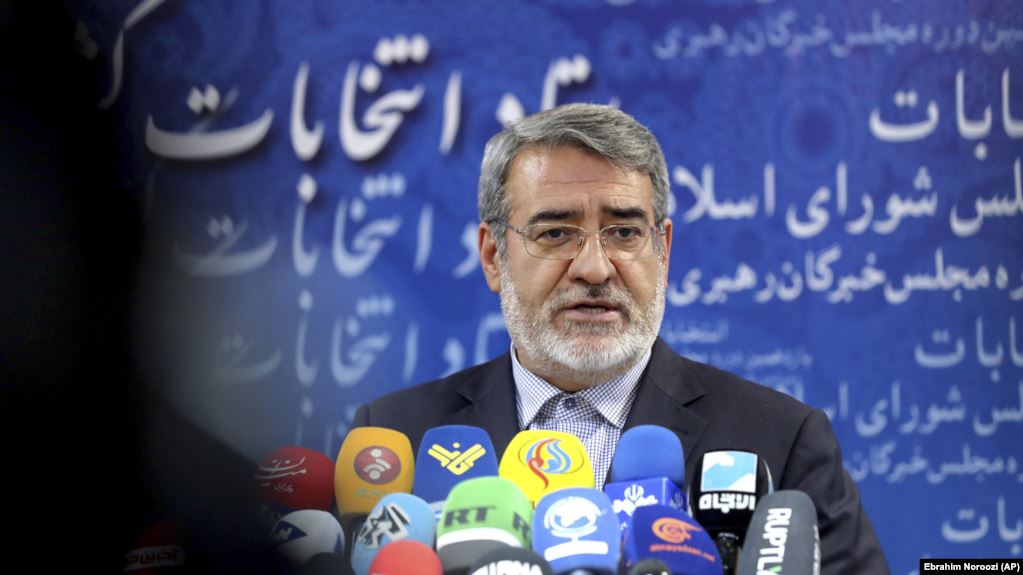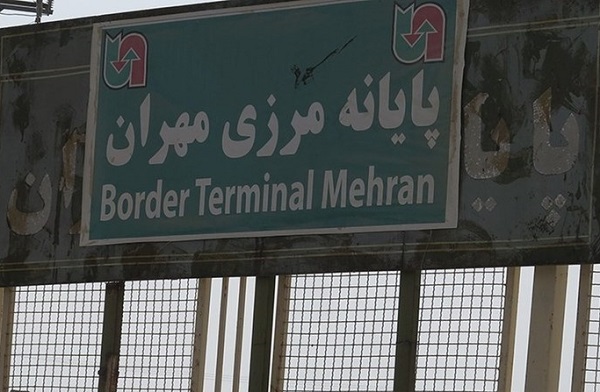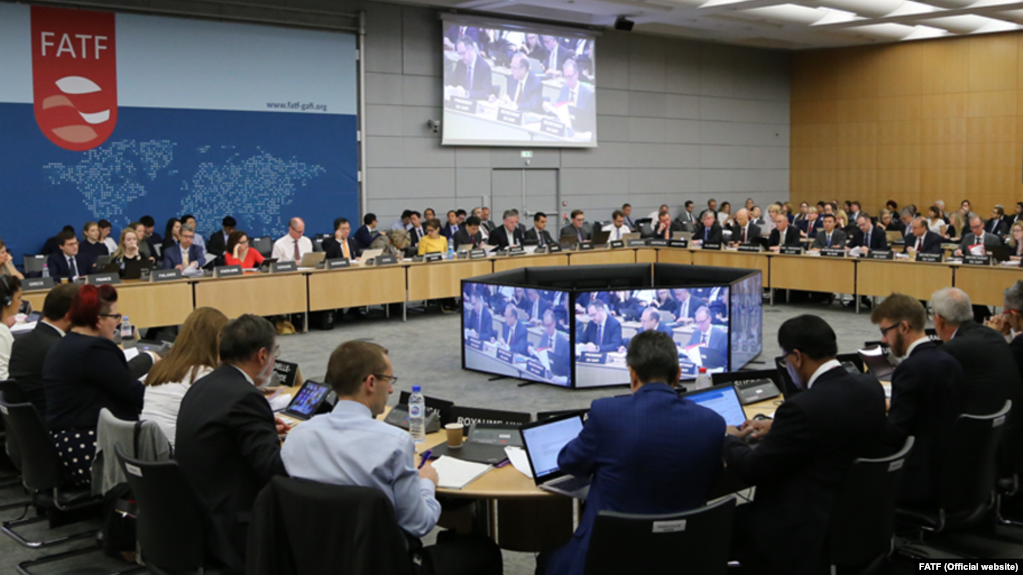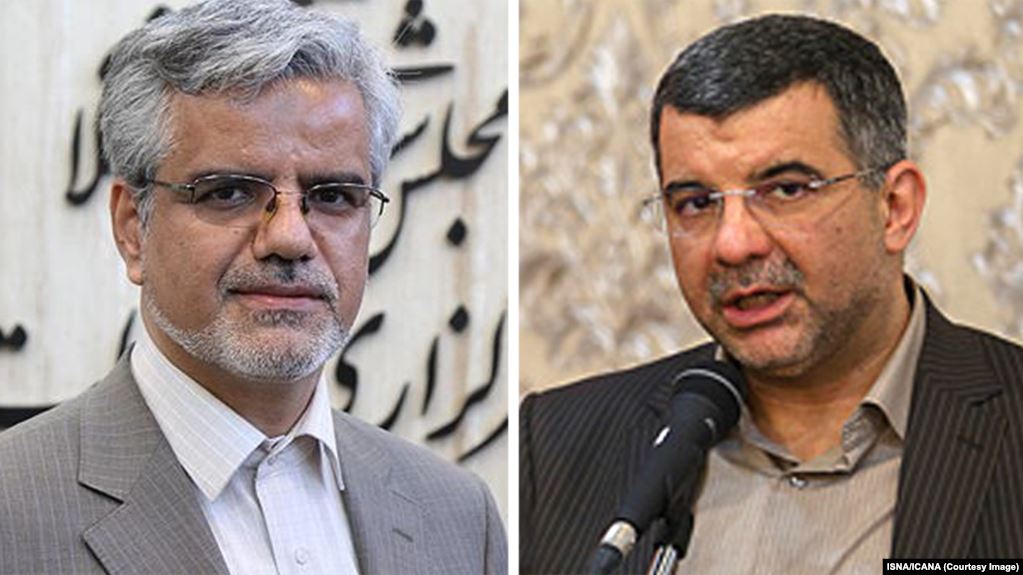
The Coronavirus Spread so Rapidly Because Priority is Given to Politics Over Everything Else!
The editorial of Mostaghel explains how the spread of the coronavirus in Iran represents a political failure.
Finally, official media outlets admitted the existence and spread of the coronavirus in the country. The mortality rate for the virus is around 2 percent, so it can be concluded that the number of people infected in the country is 50 times more than the death toll. On the other hand, this disease has an incubation period of two weeks, which means the virus has not entered the country recently.
But the basic question is: has the coronavirus spread to our neighboring countries and the Middle East? A search on the internet about the regions and countries where the coronavirus has spread shows that Iran is the first country in the Middle East where this disease has been detected and killed a number of Iranians. A number of neighboring countries like Turkey, Iraq and Kuwait have closed their borders with Iran and stopped their airlines flying to Iran.
So how come Iran has become the gateway of the coronavirus to the Middle East?
After the spread of the coronavirus in China, many countries stopped their flights to this country and many Chinese citizens who were holidaying in other countries because of the Chinese New Year had difficulties in returning to their country.
In the nick of the time, Iran’s officials rushed to help the Chinese government, perhaps to get closer to China, hoping for this country’s help and support in countering and circumventing America’s sanctions, as well as increasing the chance of China vetoing the UN Security Council’s resolution if Iran’s case is referred to it. So Iran started to transfer Chinese passengers and sent 2 million masks to China as a gift from Mahan Airlines.
Just as all citizens are responsible for protecting their health and lives and must take measures when health concerns arise, likewise statesmen and officials are responsible to take any preventive measures to safeguard public health. But politics has cast its heavy shadow over all issues in Iran; as a result, Iran has become the second victim of the coronavirus after China – while it is not a neighbor of this country, nor does it have any cultural similarities with China such as eating snakes and bats.
An Increase in the Risk and Cost of Trade With the World
The editorial of Jahan Sanat – penned by the deputy of Tehran’s commission of money and investment market – goes over the increasing costs and risks of trade with Iran, after being blacklisted by the Financial Action Task Force (FATF).
Being blacklisted by the FATF will overshadow Iran’s trade with the world. Today, interaction with the world requires implementing global regulations including the FATF. However, after being blacklisted, Iran is facing self-imposed sanctions as a result of which it will be classified as a high-risk country lacking transparency – and even suspected of money laundering.
As such, foreign pressures against Iran will rise, putting considerable restrictions on financial transactions. Even if the international sanctions against Iran have created difficulties for conducting financial transactions, being blacklisted by the FATF will further increase pressures on Iran in this regard.
In other words, from now on, the cost of financial transactions that take place through illegal channels will multiply and trade risks will increase. In fact, with the FATF blacklisting Iran, not only will foreign companies not show interest in economic transactions with Iran, but countries like China and Russia that are members of the FATF will face more difficulty in supporting Iran. As a result, all these issues will increase the cost of trade for businessmen and increase the cost of consumer goods.
In general, Iran not complying with global regulations will deny it access to global resources and economic actors will face greater costs and restrictions when undertaking financial transactions. This can hurt national production and increase livelihood costs for the Iranian people.
Being blacklisted by the FATF will intensify sanctions on Iran and will augment foreign pressures on the country. Under the current circumstances, Iran must try to act in accordance with international regulations to sustain and even develop its trade with countries of the world. But with the FATF’s decision, even commercial trade with friendly and neighboring countries will become more costly.
As a result, we can say that there is no bright future for Iran’s foreign trade and economy, and the costs and risks of trade with the world will go up.
Isolating Iran
The editorial of Jahan Sanat deals with the repercussions of Iran getting blacklisted by the FATF.
Iran’s return to the FATF’s blacklist can be viewed from two perspectives. First, under the current circumstances and due to US sanctions, ratifying the Palermo Convention and CFT (Combating the Financing of Terrorism) meant disclosing Iranian financial and banking channels to the world.
As such, Iran’s return to the FATF’s blacklist has a clear message for Iran’s economy. From now on, Iran’s financial transactions with other countries will become tougher and there will be setbacks for money transfers. In other words, other countries will be more careful and cautious in their banking and financial transactions with Iran. Also, this can create challenges for Iranians in opening bank accounts in other countries.
The second important issue is that Iran’s banking relations with the world were not at an acceptable level during the past two years. This means that even before Iran was blacklisted by the FATF, many countries avoided engaging in financial and banking transactions with Iran. This is why the major part of Iran’s financial transactions with the world is done through currency services.
Obviously, the costs of doing business with Iran will go up for other countries. The blacklisting of Iran by the FATF will increase the risk of money laundering and terrorist financing. Other countries continuing their financial dealings with Iran means more costs for the Iranian government. Accordingly, the cost of financial transactions for Iran will increase by 10 percent to 15 percent.
One can reason that Iranian decision makers have decided that returning to the FATF’s blacklist is better than joining it and disclosing Iran’s financial transaction channels to the world. Nevertheless, not joining the FATF will create problems – such as Iranian bank accounts being frozen and difficulties in transferring money – that cannot be easily overcome.
Why is There no Competition in the 11th Parliamentary Elections?
The editorial of Setareh Sobh written by the former “reformist” lawmaker Hossein Ansarirad explains why there is no competition in the 11th parliamentary elections. There was a large-scale disqualification of “reformist” candidates by the Guardian Council.
The 11th parliamentary elections in Iran is like a one-sided football match with no serious competition. That is because 95 percent of the “reformist” candidates were disqualified by the Guardian Council. So competition is mostly within one faction, rather than between two factions.
The “reformists” were disqualified despite the fact that they were all children of the revolution, had taken part in the war between Iran and Iraq, and were sympathetic to the Islamic Republic.
These disqualifications were groundless. If anyone has committed a crime, he or she must be disqualified, but not based on unproven accusations and contradictory reports. In the seventh parliamentary elections, 3,500 candidates were – the majority of them unfairly – disqualified.
The election is not competitive which is why people – particularly the middle class and intellectuals – will decide not to vote. The middle class and political activists will not participate in the elections.
The hardline “principlists” will have a majority in the next Parliament. There is not much difference between the radical and moderate “principlists”, because their general policies are the same and they think alike.
The main difference is between the “reformists” and “principlists” in domestic and foreign policies. In foreign policy, the “reformists” are after peace and developing peaceful relations with neighboring countries. As for domestic policy, they are in favor of free elections.
Meanwhile, the “principlists” who are in favor of radical policies have put Iran against other countries, particularly America. Even though America is currently an enemy of Iran, but with the right policies, this enmity can be reduced, and US sanctions can be eased.
The “reformists” believe in the country’s establishment and security, as well as in its national interests. Iran must move in the direction of interaction and peace with the world, as well as gaining the trust of the people.

The Lowest Voter Turnout Rate in the Islamic Republic’s Elections

The Iranian interior minister announced that the participation in the 11th parliamentary elections was 42.5 percent throughout Iran and 25 percent in Tehran, mentioning that issues like the coronavirus, the November protests, and the Ukrainian plane downed by the IRGC have resulted in a low voter turnout.
According to the Interior Minister Abdulreza Rahmani Fazli, 24,512,404 people voted in this election. He added that 57,918,159 people were qualified to vote, of which 42.57 percent took part in the elections.
This has been the lowest voter turnout in elections during the past 41 years.
Rahmani Fazli also said the rate of participation in Tehran was 25.4 percent (1,841,000), which is about 50 percent less than the participation in the 10th parliamentary elections.
Meanwhile, the Transition Council of Iran, a political opposition group against the Islamic Republic, issued a statement regarding the 11th parliamentary elections, saying that the outcomes and reports show the total failure of the Islamic government and the resolve of the people to go beyond this political system.
The statement said: The Iranian people boycotted the elections, turning it into a referendum on the Islamic Republic and they said no to it.
According to the Transition Council, more than 80 percent of the Iranian people said no to the Islamic Republic completely, while the Islamic government – with all its propaganda, threats, and promises – could only mobilize 19.7 percent of registered voters from across Iran and only 12.65 percent in Greater Tehran to the ballot boxes.
The Transition Council of Iran says it has obtained the statistics from its sources in Iran’s interior ministry.
Is it Time for Iran to say Goodbye to Iraq’s Market?

Iraq has blocked the Mehran border with Iran and doesn’t allow Iranian trucks to enter the country’s territory. Roughly 1,000 trucks are waiting behind the border. Even though Iranian officials express hope for the border reopening, Iraq is about to suspend and revoke gas contracts with Iran. Does this mean that Iran’s economic relationship with its neighbor is coming to an end?
Following the confirmation of the coronavirus in Iran, Iraqi officials closed land and air ports with Iran. At the Mehran border in Ilam province, many Iranian trucks are waiting to enter Iraq. Iranian officials say that Iraq has promised to resolve the issue soon.
An Iranian official said the problems and restrictions are from the Iraqi side, but it is not clear whether the issue is related to trade and customs or to health regulations in order to prevent the spread of the coronavirus.
Earlier, Javan newspaper, affiliated with the IRGC, had talked of problems in exporting gas from Iran to Iraq, mentioning that the Baghdad government is to terminate gas contracts with Iran in the next four months.
The American administration has recently agreed to extend the waiver to exempt Iraq from US sanctions on Iran. The waiver gives Iraq 45 days to boost domestic gas production or to find alternative sources to address its energy shortage, thus reducing Iraq’s reliance on Iran.
The Iraqi minister of electricity reacted to the problems in importing gas from Iran, saying that Iraq liquid fuel in its power plant.
In recent years, Iran and Iraq have had extensive political and economic relations, and Tehran has tried to keep its trade relations with Iraq after the US pulled out of the nuclear deal and US sanctions were reinstated. In Iraq, however, protesters took to the streets last October calling to end Iran’s influence in this country.
In January, some reports were released indicating a decline in demand for Iranian goods and growing calls to boycott them. But Iranian officials denied these reports claiming good relations with Iraq.
Iran Blacklisted by FATF Once Again

The FATF announced that Iran returned to its blacklist once again. The FATF issued a statement authorizing all countries to act independently in their transactions with Iran.
As such, each country can independently take measures to keep its own banking system safe from possible participation in money laundering and terrorist financing through transactions with Iran’s banking system.
Iranian officials had earlier warned that Iran’s return to the FATF’s blacklist would put a lot of pressure on the country’s economy.
The FATF, an international group which aims to combat money laundering at the global level, required Iran to ratify its anti-money laundering bills in order to lift the restrictions on Iran’s financial and banking system.
The FATF had earlier given a deadline for the sixth and the last time to Iran to ratify the bills regarding money laundering conventions and terrorist financing regulations.
Rouhani’s government had prepared four bills to meet with the FATF’s demands, but despite the government’s persistence, the bills are still in limbo in the Iranian Expediency Council.
The opponents of the bills say that if ratified, they will cause problems for Iran helping groups such as the Lebanese Hezbollah, and secret mechanisms used to circumvent US sanctions will no longer be effective.
As a consequence of being blacklisted by the FATF, accessing any product will become much tougher as buyers and sellers will refuse to transact with the Islamic Republic. What is more, any transaction will be 20 percent to 25 percent more costly for Iran. Another consequence will be the increase in the price of foreign currency and the drop in value of Iran’s national currency. The other fallout from blacklisting Iran is that more foreign currency will be taken out of Iran. Following this measure by the FATF, most countries – even those that are close to the Islamic Republic like China and Russia – will have to align themselves with the US maximum pressure campaign.
The Coronavirus Infects Iranian Officials: The Deputy Health Minister and a Tehran Lawmaker Confirm They Have the Virus

Iran’s Deputy Health Minister Iraj Harirchi and parliamentary member Mahmoud Sadeghi announced that they have contracted the coronavirus.
Mahmoud Sadeghi tweeted that he “has no hope to live” after he tested positive for the virus. Sadeghi also asked the Chief Justice Ebrahim Raisi to grant a furlough to political and security prisoners in order to stop the coronavirus from spreading.
In recent days, some reports on the possibility of the coronavirus outbreak in Iran’s prisons have been published in reaction to which the health ministry spokesman said he has had no news on a “definite diagnosis” of this disease in Iran’s prisons. “However, this issue is not highly unlikely,” added the spokesman.
Meanwhile, Iran’s Deputy Health Minister Iraj Harirchi published a video clip announcing that he was infected with the virus. Harirchi noted he had “quarantined himself in a place” and was notified that he tested positive twice.
In his video clip, Iran’s deputy health minister described the coronavirus as a “democrat” virus that “does not distinguish between rich and poor people nor between officials and non-officials.” He claimed that there is a “certain treatment” for this virus while promising to return to work soon.
